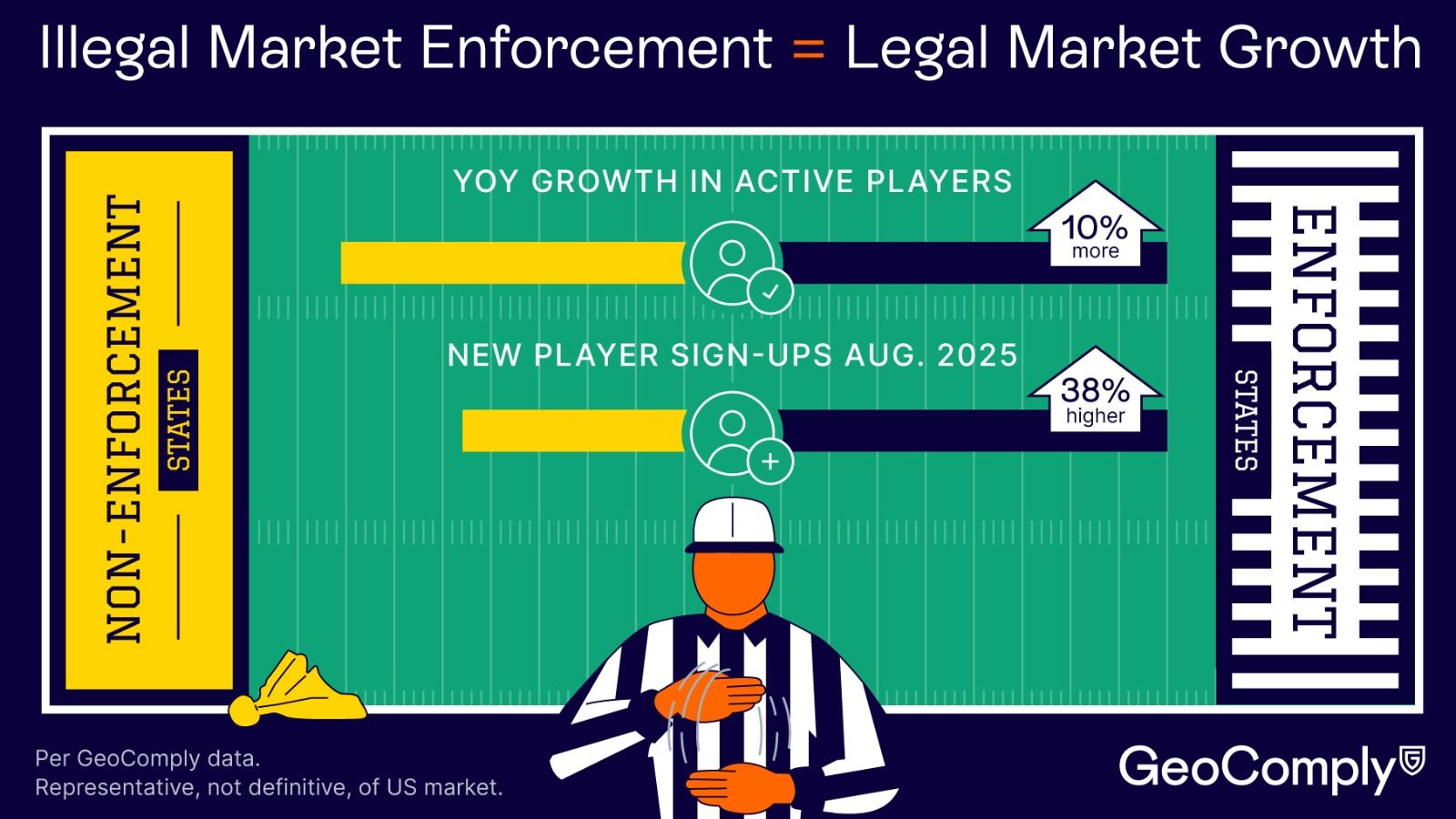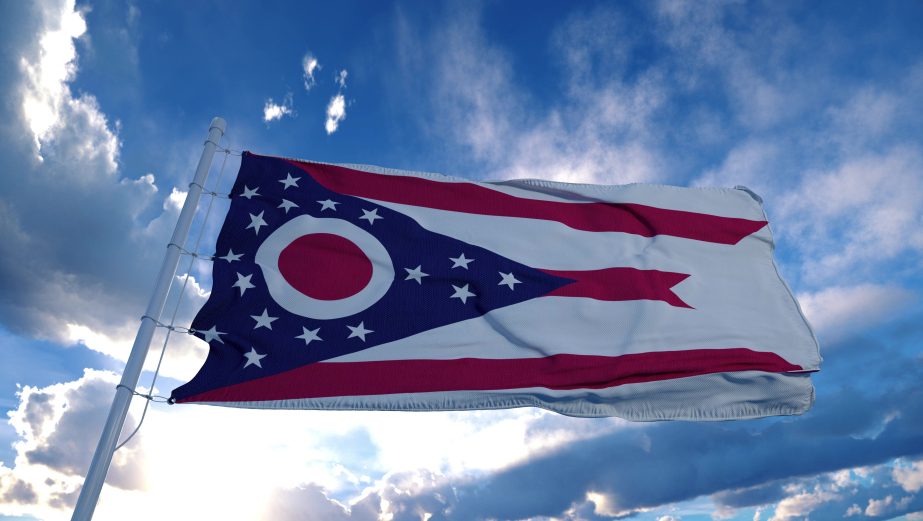A new market analysis from GeoComply released Tuesday morning shows that states that have stepped up enforcement against the illegal sports betting and iGaming markets are seeing gains in the legal market.
With the kickoff of the NFL season set for Thursday, sports betting operators are entering their busiest season of the year. College football season began two Saturdays ago, and August represents a key month for promotions and signups.
GeoComply, which provides geofencing services in the majority of legal online gambling states, compared active players and new signups in five states that have sent cease-and-desist letters to black-market operators vs. five states that did not. The comparison reveals that enforcement states in August saw a 10% year-over-year increase in active players and a 39% in increase in new accounts.
GeoComply compared figures from Arizona, Louisiana, Massachusetts, Michigan, and Tennessee, where regulators have sent cease-and-desist letters to offshore platforms in the last year, to those in Iowa, Indiana, Kentucky, North Carolina, and Virginia, where regulators have not sent out letters. All 10 states offer digital sports betting. Of the 10, only Michigan also offers online casino.
AGs call on feds for enforcement action
Besides regulators taking action, 50 U.S. attorneys general banded together, and Aug. 4 sent a letter to the U.S. Department of Justice calling for it to block access to offshore platforms and their payment servicers.
The AGs of three states — Texas, Kentucky, and Montana — did not sign the letter. Of those three, legal digital and retail sports betting is available in Kentucky, retail and on-site mobile via lottery vendors is available in Montana, and no form of sports betting is legal in Texas. AGs from the Northern Mariana Islands, Puerto Rico, and Washington, D.C. also signed the letter.
“These findings demonstrate that enforcement works,” GeoComply CEO Kip Levin said via press release. “When states crack down on illegal sportsbooks, players migrate to the legal, licensed market, where they’re protected and where their play generates state tax revenue. Consumers often can’t tell the difference between a state-regulated sportsbook and an offshore site, but when regulators take action, it raises awareness and helps guide players to safer, accountable operators.”








